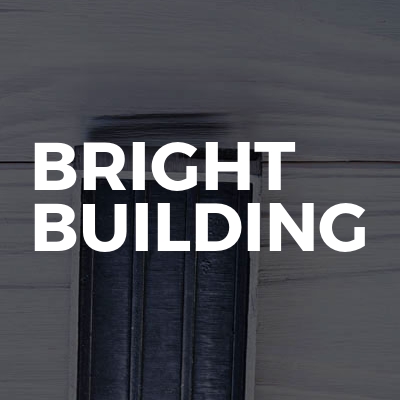Garage Conversions in Potters Bar
Search Garage Conversions in places nearby
Understanding Garage Conversions in Potters Bar
Garage conversions in Potters Bar have become increasingly popular as homeowners seek to maximise their living space without the hassle of moving. By transforming an underutilised garage into a functional room, residents can enhance their property's value and utility. Whether you're considering a home office, a guest room, or a play area, a garage conversion offers a versatile solution. This article delves into the various aspects of garage conversions, providing insights and guidance for those contemplating this home improvement project.
The Benefits of Garage Conversions
Garage conversions offer numerous advantages, making them an attractive option for homeowners. Firstly, they provide additional living space without the need for an extension, which can be more costly and time-consuming. Moreover, converting a garage can significantly increase the property's value, offering a substantial return on investment. Additionally, a well-executed conversion can enhance the home's aesthetic appeal, creating a seamless transition between the existing structure and the new space.
Cost-Effectiveness
One of the primary benefits of garage conversions is their cost-effectiveness. Compared to building an extension, converting an existing garage is generally more affordable. This is because the basic structure is already in place, reducing the need for extensive construction work. Furthermore, garage conversions typically require fewer materials and less labour, resulting in lower overall costs.
Increased Property Value
A garage conversion can significantly boost a property's market value. By adding usable living space, homeowners can attract potential buyers who are willing to pay a premium for a home with additional rooms. This is particularly true in areas like Potters Bar, where space is at a premium and demand for larger homes is high.
Enhanced Aesthetic Appeal
When done correctly, a garage conversion can enhance the overall aesthetic appeal of a home. By integrating the new space with the existing structure, homeowners can create a cohesive and visually pleasing environment. This can be achieved through careful planning and design, ensuring that the conversion complements the home's architectural style.
Planning Your Garage Conversion
Before embarking on a garage conversion project, it's essential to plan carefully. This involves considering various factors, such as the intended use of the space, budget constraints, and any necessary permissions or regulations. Proper planning ensures a smooth conversion process and helps avoid potential pitfalls.
Determining the Purpose
The first step in planning a garage conversion is determining the purpose of the new space. Whether you need an extra bedroom, a home office, or a gym, having a clear idea of the intended use will guide the design and layout decisions. It's important to consider the needs of your household and how the new space will fit into your lifestyle.
Setting a Budget
Establishing a budget is crucial for any home improvement project. Garage conversions can vary significantly in cost, depending on factors such as the size of the garage, the complexity of the design, and the materials used. By setting a realistic budget, you can ensure that the project remains financially feasible and avoid unexpected expenses.
Obtaining Permissions and Meeting Regulations
In Potters Bar, as in many areas, garage conversions may require planning permission or adherence to building regulations. It's essential to check with the local council to determine what permissions are needed and ensure that the conversion complies with all relevant regulations. This may include considerations such as fire safety, insulation, and structural integrity.
Design Considerations for Garage Conversions
Design plays a crucial role in the success of a garage conversion. A well-designed space not only meets functional needs but also enhances the home's overall aesthetic. When planning a garage conversion, several design considerations should be taken into account.
Maximising Natural Light
Garages often lack natural light, making it essential to incorporate windows or skylights into the design. Maximising natural light can make the new space feel more open and inviting. Consider the placement of windows to take advantage of sunlight throughout the day, and use light colours and reflective surfaces to enhance brightness.
Optimising Space
Space optimisation is key in a garage conversion, especially if the area is small. Clever storage solutions, such as built-in shelves or multi-functional furniture, can help maximise the available space. Additionally, an open-plan design can create a sense of spaciousness, making the room feel larger than it is.
Ensuring Comfort
Comfort is a critical consideration in any living space. For a garage conversion, this means ensuring adequate insulation, heating, and ventilation. Proper insulation will keep the space warm in winter and cool in summer, while effective ventilation will ensure good air quality. Consider underfloor heating or radiators to maintain a comfortable temperature year-round.
Common Uses for Converted Garages
Garage conversions offer a versatile solution for homeowners looking to expand their living space. There are numerous ways to utilise a converted garage, depending on individual needs and preferences. Here are some common uses for converted garages.
Home Office
With the rise of remote working, many homeowners are converting garages into home offices. A dedicated workspace can improve productivity and provide a quiet environment for work. Consider ergonomic furniture, ample storage, and good lighting to create an efficient and comfortable office space.
Guest Room
A converted garage can serve as a guest room, providing a private and comfortable space for visitors. Include a bed, storage, and en-suite facilities if possible, to ensure guests have everything they need. Thoughtful touches, such as soft furnishings and decor, can make the space feel welcoming and homely.
Playroom or Gym
For families with children, a playroom can be an ideal use for a converted garage. Include plenty of storage for toys and games, and consider safety features such as soft flooring. Alternatively, a home gym can be a great way to stay fit without leaving the house. Equip the space with exercise equipment and ensure adequate ventilation for a comfortable workout environment.
Choosing the Right Professionals for Your Conversion
Hiring the right professionals is crucial for a successful garage conversion. From architects to builders, the expertise of skilled professionals can make a significant difference in the quality and outcome of the project.
Architects and Designers
An architect or designer can help bring your vision to life, ensuring that the conversion meets your needs and complements your home's style. They can provide valuable insights into space planning, design, and materials, helping you make informed decisions throughout the project.
Builders and Contractors
Choosing experienced builders and contractors is essential for a smooth and efficient conversion process. Look for professionals with a proven track record in garage conversions, and check references and reviews to ensure their reliability and quality of work. Clear communication and a detailed contract can help avoid misunderstandings and ensure the project stays on track.
Specialists and Tradespeople
Depending on the complexity of the conversion, you may need to hire specialists such as electricians, plumbers, or HVAC technicians. Ensure that all tradespeople are qualified and experienced, and that they adhere to relevant regulations and standards. Coordinating the work of different trades can be challenging, so consider hiring a project manager to oversee the process.
Legal and Regulatory Considerations
Before starting a garage conversion, it's important to understand the legal and regulatory considerations involved. This ensures that the project complies with local laws and regulations, avoiding potential issues down the line.
Planning Permission
In some cases, garage conversions may require planning permission from the local council. This is particularly true if the conversion involves significant structural changes or affects the property's exterior appearance. Check with the Potters Bar council to determine whether planning permission is needed for your project.
Building Regulations
Building regulations are designed to ensure the safety and quality of construction work. Garage conversions must comply with these regulations, which cover aspects such as structural integrity, fire safety, insulation, and ventilation. It's important to work with professionals who are familiar with these requirements and can ensure that the conversion meets all necessary standards.
Neighbour Considerations
While not a legal requirement, it's courteous to inform neighbours of your plans for a garage conversion. This can help maintain good relations and avoid potential disputes. Consider how the conversion might impact neighbours, such as noise during construction or changes to the property's appearance, and address any concerns they may have.
Financing Your Garage Conversion
Financing a garage conversion can be a significant investment, but there are several options available to help manage the costs. Understanding these options can help you choose the best financing solution for your needs.
Personal Savings
Using personal savings is a straightforward way to finance a garage conversion. This option avoids the need for loans or interest payments, making it a cost-effective choice if you have sufficient funds available. However, it's important to ensure that using savings won't leave you financially vulnerable in case of unexpected expenses.
Home Improvement Loans
Home improvement loans are a popular financing option for garage conversions. These loans are specifically designed for home renovation projects and can offer competitive interest rates. Shop around for the best loan terms and ensure that you can comfortably manage the repayments.
Remortgaging
Remortgaging involves taking out a new mortgage on your property, often with better terms or a larger loan amount. This can provide the funds needed for a garage conversion, but it's important to consider the long-term implications, such as changes to your mortgage payments and interest rates.
Frequently Asked Questions
- Do I need planning permission for a garage conversion in Potters Bar? It depends on the scope of the conversion. Check with the local council to determine if planning permission is required.
- How much does a garage conversion cost? Costs vary depending on factors such as size, design, and materials. On average, a garage conversion can cost between £5,000 and £20,000.
- How long does a garage conversion take? The duration of a garage conversion can vary, but most projects take between four to six weeks to complete.
- Can I convert a detached garage? Yes, detached garages can be converted, but they may require additional considerations, such as utilities and access.
- Will a garage conversion add value to my home? Yes, a well-executed garage conversion can increase your property's value by providing additional living space.
- What are the common uses for a converted garage? Common uses include home offices, guest rooms, playrooms, and gyms.
Conclusion
Garage conversions in Potters Bar offer a practical and cost-effective way to enhance your home's living space and value. By carefully planning the project, considering design and legal aspects, and choosing the right professionals, you can create a functional and aesthetically pleasing space that meets your needs. Whether you're looking to add a home office, guest room, or play area, a garage conversion can provide the perfect solution for expanding your living space without the need for a costly extension.












